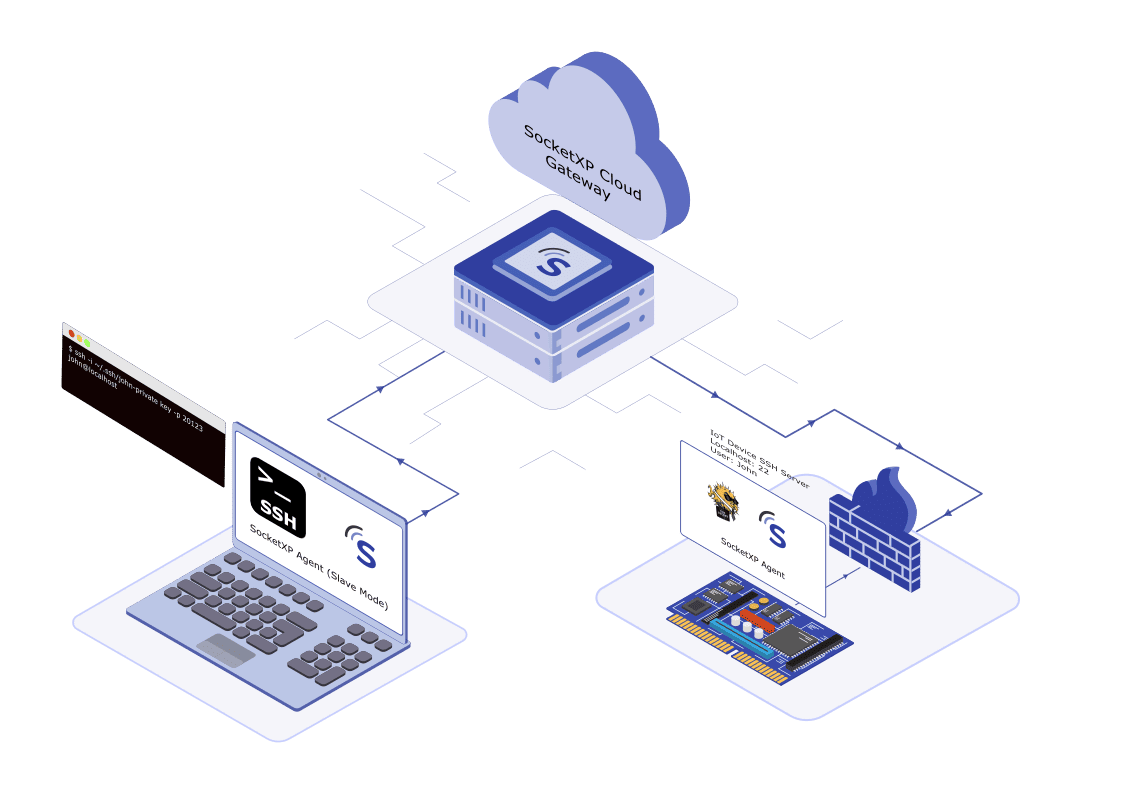Remote IoT Platform SSH Android: The Ultimate Guide To Enhancing Your Connectivity
In today's digital age, remote IoT platform SSH Android has become an essential tool for managing connected devices and maintaining secure access from anywhere in the world. As more industries adopt IoT technologies, understanding how to leverage SSH on Android devices becomes increasingly important. This article will provide a comprehensive overview of the topic, ensuring you have all the necessary information to make informed decisions.
IoT (Internet of Things) continues to revolutionize the way we interact with technology, enabling seamless communication between devices. However, with the rise of IoT adoption comes the need for robust security measures. Remote access through SSH (Secure Shell) ensures that users can manage and control IoT devices securely, even when they are not physically present.
This guide will explore the fundamentals of remote IoT platform SSH Android, including its benefits, implementation methods, and best practices. Whether you're a beginner or an experienced professional, this article will equip you with the knowledge to enhance your IoT infrastructure and improve your remote management capabilities.
Read also:Sammy Thighs Porn A Comprehensive Exploration
Table of Contents
- Introduction to Remote IoT Platform
- Understanding SSH
- SSH on Android
- Benefits of Remote IoT Platform SSH Android
- How to Set Up SSH for Remote IoT
- Best Practices for Remote IoT Platform
- Security Considerations
- Tools and Applications
- Case Studies
- Future of Remote IoT Platform
Introduction to Remote IoT Platform
Remote IoT platforms enable users to monitor and manage IoT devices from anywhere in the world. These platforms provide a centralized interface for controlling various devices, ensuring seamless integration and operation. By leveraging remote IoT platform SSH Android, users can securely connect to their IoT devices without compromising data integrity.
One of the primary advantages of remote IoT platforms is their ability to streamline operations, reduce maintenance costs, and improve overall efficiency. With the increasing number of IoT devices being deployed across industries, the demand for reliable remote management solutions has never been higher.
Understanding SSH
SSH, or Secure Shell, is a cryptographic network protocol designed to provide secure communication over unsecured networks. It is widely used for remote command-line login and execution, allowing users to access and manage devices securely.
Key Features of SSH
- Encryption: SSH encrypts all data transmitted between the client and server, ensuring confidentiality.
- Authentication: SSH supports various authentication methods, including passwords, public key authentication, and more.
- Integrity: SSH ensures data integrity by verifying the authenticity of transmitted information.
SSH on Android
With the growing popularity of Android devices, integrating SSH functionality has become increasingly important. Android users can now utilize SSH clients and servers to manage IoT devices remotely. This capability opens up new possibilities for individuals and businesses alike, enabling them to maintain control over their IoT infrastructure from their mobile devices.
Read also:Viral Desi Mms The Phenomenon Thats Taking The World By Storm
Popular SSH Clients for Android
- Termius
- JuiceSSH
- Server Ultimate
Benefits of Remote IoT Platform SSH Android
Implementing remote IoT platform SSH Android offers numerous advantages, including:
- Increased Flexibility: Users can manage IoT devices from anywhere, at any time, using their Android devices.
- Enhanced Security: SSH ensures secure communication, protecting sensitive data from unauthorized access.
- Cost Efficiency: Remote management reduces the need for on-site maintenance, lowering operational costs.
- Improved Scalability: As IoT deployments grow, remote platforms can easily scale to accommodate additional devices.
How to Set Up SSH for Remote IoT
Setting up SSH for remote IoT platform SSH Android involves several steps. Below is a step-by-step guide to help you get started:
Step 1: Install an SSH Client
Download and install a reliable SSH client on your Android device. Popular options include Termius and JuiceSSH.
Step 2: Configure the IoT Device
Ensure your IoT device is properly configured to accept SSH connections. This may involve enabling SSH services and setting up appropriate authentication methods.
Step 3: Connect to the Device
Using your SSH client, establish a connection to the IoT device by entering its IP address and login credentials.
Best Practices for Remote IoT Platform
To maximize the effectiveness of remote IoT platform SSH Android, consider implementing the following best practices:
- Regularly update firmware and software to ensure compatibility and security.
- Use strong, unique passwords and consider implementing multi-factor authentication (MFA).
- Monitor network activity to detect and respond to potential threats.
- Document all configurations and settings for future reference.
Security Considerations
Security is paramount when it comes to remote IoT platform SSH Android. Below are some key considerations to keep in mind:
- Implement firewalls and intrusion detection systems to protect against unauthorized access.
- Limit SSH access to trusted IP addresses whenever possible.
- Disable unused services and ports to reduce the attack surface.
Tools and Applications
Several tools and applications are available to enhance the functionality of remote IoT platform SSH Android. Some notable options include:
1. Termius
Termius is a powerful SSH client that offers a user-friendly interface and advanced features such as terminal sessions, file transfers, and more.
2. JuiceSSH
JuiceSSH is another popular SSH client for Android, known for its simplicity and ease of use. It supports multiple connections and provides a clean, intuitive interface.
Case Studies
Real-world examples demonstrate the effectiveness of remote IoT platform SSH Android in various industries. For instance, a manufacturing company implemented SSH-based remote management to monitor and control IoT-enabled machinery, resulting in significant cost savings and improved productivity.
Future of Remote IoT Platform
As IoT continues to evolve, the role of remote IoT platform SSH Android will only become more critical. Emerging technologies such as 5G and edge computing will further enhance the capabilities of remote management solutions, enabling even greater connectivity and efficiency.
Looking ahead, businesses must stay informed about the latest developments in IoT and SSH technologies to remain competitive in an increasingly connected world.
Conclusion
In conclusion, remote IoT platform SSH Android represents a powerful solution for managing IoT devices securely and efficiently. By understanding the fundamentals of SSH and implementing best practices, users can unlock the full potential of their IoT infrastructure. We encourage you to explore the tools and resources mentioned in this article and take advantage of the opportunities remote management offers.
We invite you to share your thoughts and experiences in the comments section below. Additionally, feel free to explore other articles on our website for more insights into IoT and related technologies. Together, let's shape the future of connectivity and innovation!

